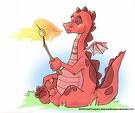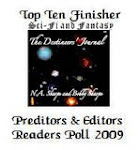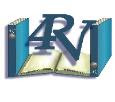In any given fantasy magical system, a person must have limits to his magical abilities, or the story has no conflict: the magic can overwhelm the other side. Conflict is imperative to keep your storyline moving forward.
One of the most common techniques used in the fantasy genre is limiting the amount of magical ability available to your characters. In The Magic Goes Away, Larry Niven made it a factor of environment: once the mana is exhausted in an area, no one can use magic - innately magical beings, such as centaurs, die or lose their magical aspects, and magical creatures who have transformed into their magical state, such as werewolves, revert to a non-magical wolf state.
A more common use is that a person can only cast so many spells, or use an ability so many times, in a day, or use a measured amount of magic. This is the most common use in role-playing games, where the rules rigorously define them. Similarly, in Robert Jordan's popular series, The Wheel of Time, the One Power is limitless but each individual user can only channel a limited amount of it at any one time.
An alternative form of magical limitation provides theoretically unlimited power, but restricts what a user can do to what that user is capable of imagining, comprehending and understanding. In this scenario, magical ability may often be increased through scientific study of the world in order to better understand its working, something observed in The Belgariad by David Eddings. In Earthsea, magic is limited by a balance factor which requires the user to take into account the consequences and effects of what he does; a student of the arts soon finds out that the proper way to use magic is to do only what he must do.
Powers can also be restricted to a certain kind of ability. This is more common for innately magical beings than for those who have learned it. The person can be rendered defenseless by a situation to which his powers do not apply. For instance, if one is inside or underground the power to manipulate the weather is relatively useless.
Magic can also require various sacrifices. Blood or life can be required, and even if the magician has no scruples, obtaining the material may be difficult. Harmless substances can also limit the magician if they are rare, such as gemstones.
The need for learning may also limit what spells a wizard knows, and can cast. When magic is learned from rare and exotic books, the wizard's ability can be limited, temporarily, by his access to these books. In Earthsea, the changing of names weakens wizards as they travel; they must learn the true names of things in their new location to be powerful again.
Yet another theory of magic is that the spells take the same amount of energy needed for the resault of the spell is also taken from the caster, such as in the Inheritance Cycle. Depending on how strong or advanced the spell is compared to the caster, the spell can cause weakness, fainting, or even death. Christopher Paolini says in the book Eragon magic is limited by the energy of your body.
Magic may also be limited not so much inherently as by its danger. If a powerful spell can cause equally grave harm if miscast, wizards are likely to be wary of using it. One example of this is Jack Vance's The Dying Earth novels, in which even one little slip of the tongue in reciting one the vocal elements (called "pervulsions" in the novels) of the incantations of the spells could dramatically change the effect from the desired outcome. In the case of Cugel the Clever, he finds himself seized in the claws of a demon, and carried thousands of miles across an impassable sea to a place where he tried to escape from earlier in the story.
Many characters that work with magic are limited to using wands or staffs (as mentioned above). Harry Potter is, as well as the wizards in Dealing With Dragons by Patricia C. Wrede.
What type of magical system will you engage in your fantasy world? Perhaps you have a favorite story that will influence the decisions you make in engaging the rules of magic within your fantasy realm. I'd love to hear what works and doesn't work for you when you think of the magical world.
One of the most common techniques used in the fantasy genre is limiting the amount of magical ability available to your characters. In The Magic Goes Away, Larry Niven made it a factor of environment: once the mana is exhausted in an area, no one can use magic - innately magical beings, such as centaurs, die or lose their magical aspects, and magical creatures who have transformed into their magical state, such as werewolves, revert to a non-magical wolf state.
A more common use is that a person can only cast so many spells, or use an ability so many times, in a day, or use a measured amount of magic. This is the most common use in role-playing games, where the rules rigorously define them. Similarly, in Robert Jordan's popular series, The Wheel of Time, the One Power is limitless but each individual user can only channel a limited amount of it at any one time.
An alternative form of magical limitation provides theoretically unlimited power, but restricts what a user can do to what that user is capable of imagining, comprehending and understanding. In this scenario, magical ability may often be increased through scientific study of the world in order to better understand its working, something observed in The Belgariad by David Eddings. In Earthsea, magic is limited by a balance factor which requires the user to take into account the consequences and effects of what he does; a student of the arts soon finds out that the proper way to use magic is to do only what he must do.
Powers can also be restricted to a certain kind of ability. This is more common for innately magical beings than for those who have learned it. The person can be rendered defenseless by a situation to which his powers do not apply. For instance, if one is inside or underground the power to manipulate the weather is relatively useless.
Magic can also require various sacrifices. Blood or life can be required, and even if the magician has no scruples, obtaining the material may be difficult. Harmless substances can also limit the magician if they are rare, such as gemstones.
The need for learning may also limit what spells a wizard knows, and can cast. When magic is learned from rare and exotic books, the wizard's ability can be limited, temporarily, by his access to these books. In Earthsea, the changing of names weakens wizards as they travel; they must learn the true names of things in their new location to be powerful again.
Yet another theory of magic is that the spells take the same amount of energy needed for the resault of the spell is also taken from the caster, such as in the Inheritance Cycle. Depending on how strong or advanced the spell is compared to the caster, the spell can cause weakness, fainting, or even death. Christopher Paolini says in the book Eragon magic is limited by the energy of your body.
Magic may also be limited not so much inherently as by its danger. If a powerful spell can cause equally grave harm if miscast, wizards are likely to be wary of using it. One example of this is Jack Vance's The Dying Earth novels, in which even one little slip of the tongue in reciting one the vocal elements (called "pervulsions" in the novels) of the incantations of the spells could dramatically change the effect from the desired outcome. In the case of Cugel the Clever, he finds himself seized in the claws of a demon, and carried thousands of miles across an impassable sea to a place where he tried to escape from earlier in the story.
Many characters that work with magic are limited to using wands or staffs (as mentioned above). Harry Potter is, as well as the wizards in Dealing With Dragons by Patricia C. Wrede.
What type of magical system will you engage in your fantasy world? Perhaps you have a favorite story that will influence the decisions you make in engaging the rules of magic within your fantasy realm. I'd love to hear what works and doesn't work for you when you think of the magical world.





.gif)





















2 comments:
I like the idea of using rules with magic...it's the only way to ensure enough conflict in the story (otherwise, the characters are resolving their problems with magic.)
Elizabeth
Mystery Writing is Murder
Great point .... limitaions are necessary to make a believable character and to introsuce conflict. I started my trilogy with the characters young like early to mid 20s and they are at that stage where they still make a lot of unwise decisions.
These will result in stupid mistakes that of course opens the door for conflict and puts their lives in danger and almost gets the protagonist killed.
Stephen Tremp
Post a Comment